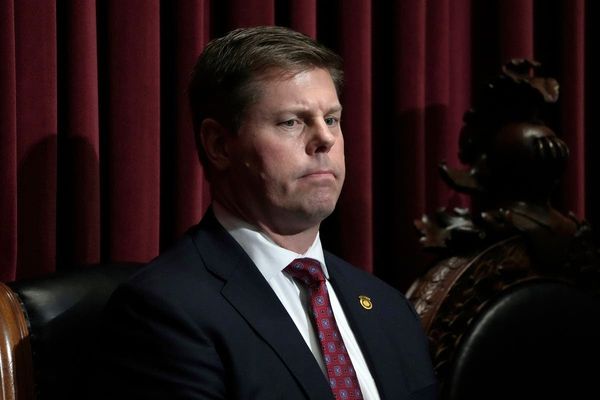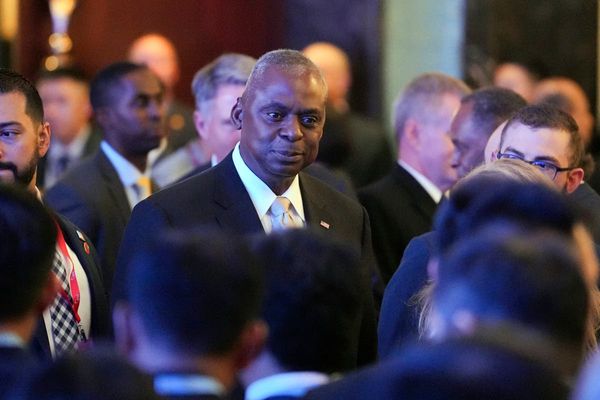
In the ever-changing flux that is the rugby world’s balance of power, an intriguing point of reference will be established in Bordeaux on Sunday. We are nearly 30 years into rugby union’s professional era. There are teams rising and falling all over the place, as the new economic, political and cultural energies play out. In this context, Wales against Fiji feels particularly poignant.
Two countries high on rugby passion, low on resource; one a part of the old order, the other always in the middle of the deep-blue sea watching on from afar. Both famed, at least in the easy stereotypes of legend, for playing the rugby of romance.
If we are talking about talent, there is no question which is the better rugby-playing nation. That is no shame on Wales, who probably top that metric in the northern hemisphere, but Fiji, along with their confreres in the Pacific Ocean, Samoa and Tonga, produce far and away the best rugby players in the world. If you compare their ethnic populations (0.034% of the world’s) with the number of professional rugby players they supply to the global pool (nearly a fifth), it would be absurd to claim otherwise. The world has long known that if the playing field were level, the Pacific island nations would dominate.
The general effect of the professional era, meanwhile, has been to loosen the grip in relative terms of those nations (New Zealand, South Africa, Australia) who used to dominate totally, in favour of those who enjoy greater economic heft (France, England, Japan) and those who have organised themselves effectively (Ireland, Argentina). All the while, we await anxiously the unwinding of the Pacific islanders’ fate.
The most interesting development on the eve of this World Cup has been the rise of Fiji, despite all the above. To say this has been sudden may not be fair, given Fiji are responsible for one of the great upsets in World Cup history – 2007, in France, against Wales – but they have self-evidently, like most economically disadvantaged nations, been swimming against the tide.
The size of their economies has long been cited as the great conundrum thwarting an ascension of the Pacific island nations to a playing field level with the those of the rest, but if one of them does have an economy of any note it is Fiji. It seems now they are making it tell.
They have just beaten England for the first time. At Twickenham. They sit seventh in World Rugby’s rankings, the highest in Pool C, which includes Australia (ninth) and Wales (10th). England are eighth.
Many may be the theories behind their rise, which feels more concerted now than it did in, say, 2007, but a good place to start is the Fijian Drua, the fully professional team (the first to be based in Fiji) now with two seasons in Super Rugby under their belt. The chief executive of the Drua is Mark Evans, who knows a fair bit about the challenges facing Welsh rugby as well. The former chief executive of Harlequins and the Melbourne Storm – who has advised the Welsh Rugby Union – is smitten with the place.

“It’s the most rugby-crazy country I’ve ever seen or worked in,” says Evans, the born and bred Welshman. “There’s no comparison, there really isn’t. Just extraordinary.” According to Evans, the Drua’s live matches are watched by half of Fiji’s population of nearly a million.
As a resource of rugby talent, Fiji – like Samoa and Tonga – has long been plundered by bigger nations, but the Drua supplies a new route through which talented players can develop without having to leave the islands. In other words, it is carving out and consolidating Fiji’s player pathways, groundwork that Wales might look on with interest. “For all the nations with relatively low participation numbers, having excellent pathways is critical,” says Evans.
For the past 15 years or so, Wales, the national team, have thrived on the exploits of a golden generation, but the story below national level has been more complicated.
It might be a misnomer to describe Wales as uniquely driven by rugby passions – if anything, Fiji is more so – but the culture of Welsh rugby, seeping up from the floor of the valleys, has hindered the development of those pathways at least as much as it has empowered them.
Nowhere is this better illustrated than by the continuing struggles to incorporate the four regions into a coherent top-to-bottom system. Neither soulful local club, nor official branch of a national union, the regions remain an awkward construct. Wales cannot afford any misalignment in those pathways if they are to continue to hold their own among better-resourced peers. Sometimes local passions need to be transcended to service the greater good.
- Download the Guardian app from the iOS App Store on iPhone or the Google Play store on Android by searching for 'The Guardian'.
- If you already have the Guardian app, make sure you’re on the most recent version.
- In the Guardian app, tap the Menu button at the bottom right, then go to Settings (the gear icon), then Notifications.
- Turn on sport notifications.
How Wales must look on in envy at Fiji’s simple new feeder team of the Drua. Evans does not expect the full impact of their creation to work through before the 2027 World Cup, but working through it already is.
The population of Wales is three million, a similar number to another country with a team in Pool C, Georgia (one rank below Wales in 11th). Fiji’s is one million. There is more in common between these two than might have seemed obvious until now. Sunday’s match will provide a fresh snapshot of where Wales and Fiji stand on rugby’s shifting sands.







